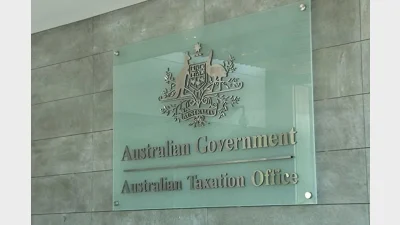(June-2003) Why it’s important to stick with an allocated pension
Retirees are understandably worried about their retirement investments in current market conditions — and there is some evidence they are leaving allocated pensions. March 2003 figures show that allocated pension funds under management are down 7.2 per cent (DEXX&R).
In early May, Brian Thomas of Credit Suisse gave an interesting presentation to members of the Investment and Financial Services Association (IFSA), looking at allocated pensions from the perspective of the retirees who hold them.
Closing an allocated pension or annuity and moving funds into cash or interest-based investments could mean that retirees crystallise current low asset prices. This is not a new problem, but it does have particularly severe consequences for retirees who cannot make up the loss, and who may have to live on lower income.
It’s easy enough to say that a loss is only a loss if you sell. It’s much harder to convince retirees who must draw income from their investments no matter where asset prices go.
Part of the problem is that retirees may have the wrong idea about income streams in the first place. Many seem to think that an allocated pension will allow them to draw income and keep their capital intact, and this impression was reinforced by the high returns of the 1990s. Allocated pensions are designed to assist retirees to draw down capital progressively over their life expectancy, but this message has probably not been well understood. This misconception has been seen in calls to the National Information Centre on Retirement Investments, letters to ministers and calls to IFSA members’ call centres.
A further problem for retirees is volatility. Understandably, illustrations for retirement income streams show long-term average returns — in nice, smooth curves. Even in balanced portfolios, real returns are hardly smooth. This might be fine when volatility occurs above expectations, but as returns vary into the negative, we see retirees become very worried indeed.
Thomas’s analysis showed that a steady income drawing (proportionally from all asset classes) — regardless of actual returns — produced reasonably smooth income over time. This is much like dollar cost averaging in reverse, as a number of commentators have pointed out. Even modelled against the 1987 share market crash, this strategy produced a reasonable steady flow of income. All the same, this may not be much comfort to retirees watching account balances fall.
One of the more interesting ideas Thomas modelled was the return needed to recover from recent asset price falls. Many retirees see this number as the effort needed to recover their initial account balance — and that is a fairly high number. However, the return needed to put a retiree ‘back’ on the income or account balance curve that an allocated pension should reasonably expect is much, much smaller.
The positive message here is that if we can help retirees understand how allocated income streams work, and how to use them, we can reduce their anxiety. There are some key messages:
n Allocated products help spread retirement savings across life expectancy, so drawing down the capital is quite normal.
n Getting the investment risk ‘right’ for your own risk tolerance should mean there is no need to panic and change investments at a ‘worst’ time.
n There will be volatility in growth assets — this is normal, and the flexibility of allocated pensions means you can make some adjustments.
Retirees’ concern with current asset prices is very sensible. The main thing is to make sure that this concern isn’t compounded by misunderstandings — and that retirees’ responses to current asset values don’t leave them worse off in the long run.
— Richard Gilbert is CEO of IFSA.
Recommended for you
The responsible investment body is warning that a one-size-fits-all ESG framework mirroring those in the UK and the EU could do more harm than good.
Australian super funds are monitoring the US closely as President Donald Trump increasingly intervenes in corporate policy, moves that are reverberating through global markets and prompting reassessments of portfolio risk.
Industry fund HESTA has filed an appeal against an ATO decision on tax offsets from franking credits, with the Australian Retirement Trust set to file a similar claim soon.
The latest superannuation performance test results have shown improvements, but four in 10 trustee-directed products continue to exhibit “significant investment underperformance”, warns APRA.











